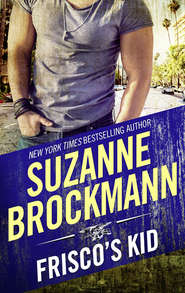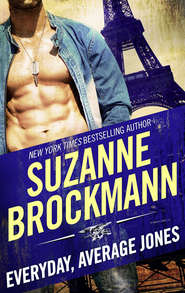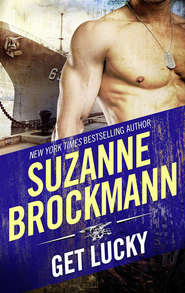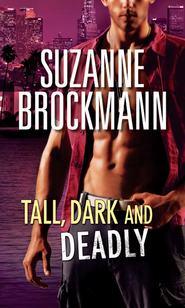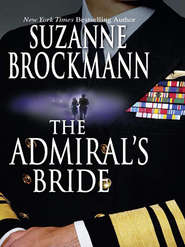По всем вопросам обращайтесь на: info@litportal.ru
(©) 2003-2025.
✖
Tall, Dark and Fearless: Frisco's Kid
Автор
Год написания книги
2019
Настройки чтения
Размер шрифта
Высота строк
Поля
“God, a kid,” Frisco said again. “You going to call him Joe Cat, Junior?”
“I want a girl,” Joe admitted. His smile softened. “A redhead, like her mother.”
“So what’s the other part?” Frisco asked. At Joe’s blank look, he added, “You said this was partly a social call. That means it’s also partly something else. Why else are you here?”
“Oh. Yeah. Steve Horowitz called me and asked me to come sit in while he talked to you.”
Frisco slipped on a T-shirt, instantly wary. Steve Horowitz was his doctor. Why would his doctor want Joe around when he talked to Frisco? “What about?”
Joe wouldn’t say, but his smile faded. “There’s an officer’s lounge at the end of the hall,” he said. “Steve said he’d meet us there.”
A talk in the officer’s lounge. This was even more serious than Frisco had guessed. “All right,” he said evenly. It was pointless to pressure Joe. Frisco knew his former commander wouldn’t tell him a thing until Steve showed up.
“How’s the knee?” Joe asked as they headed down the corridor. He purposely kept his pace slow and easy so that Frisco could keep up.
Frisco felt a familiar surge of frustration. He hated the fact that he couldn’t move quickly. Damn, he used to break the sprint records during physical training.
“It’s feeling better today,” he lied. Every step he took hurt like hell. The really stupid thing was that Joe knew damn well how much pain he was in.
He pushed open the door to the officer’s lounge. It was a pleasant enough room, with big, overstuffed furniture and a huge picture window overlooking the gardens. The carpet was a slightly lighter shade of blue than the sky, and the green of the furniture upholstery matched the abundant life growing outside the window. The colors surprised him. Most of the time Frisco had spent in here was late at night, when he couldn’t sleep. In the shadowy darkness, the walls and furniture had looked gray.
Steven Horowitz came into the room, a step behind them. “Good,” he said in his brisk, efficient manner. “Good, you’re here.” He nodded to Joe. “Thank you, Lieutenant, for coming by. I know your schedule’s heavy, too.”
“Not too heavy for this, Captain,” Joe said evenly.
“What exactly is ‘this’?” Frisco asked. He hadn’t felt this uneasy since he’d last gone out on a sneak-and-peek—an information-gathering expedition behind enemy lines.
The doctor gestured to the couch. “Why don’t we sit down?”
“I’ll stand, thanks.” Frisco had sat long enough during those first few years after he’d been injured. He’d spent far too much time in a wheelchair. If he had his choice, he’d never sit again.
Joe made himself comfortable on the couch, his long legs sprawled out in front of him. The doctor perched on the edge of an armchair, his body language announcing that he wasn’t intending to stay long.
“You’re not going to be happy about this,” Horowitz said bluntly to Frisco, “but yesterday I signed papers releasing you from this facility.”
Frisco couldn’t believe what he was hearing. “You did what?”
“You’re out of here,” the doctor said, not unkindly. “As of fourteen hundred hours today.”
Frisco looked from the doctor to Joe and back. Joe’s eyes were dark with unhappiness, but he didn’t contradict the doctor’s words. “But my physical therapy sessions—”
“Have ended,” Horowitz said. “You’ve regained sufficient use of your knee and—”
“Sufficient for what?” Frisco asked, outraged. “For hobbling around? That’s not good enough, dammit! I need to be able to run. I need to be able to—”
Joe sat up. “Steve told me he’s been watching your chart for weeks,” the commander of Alpha Squad told Frisco quietly. “Apparently, there’s been no improvement—”
“So I’m in a temporary slump. It happens in this kind of—”
“Your therapist has expressed concern that you’re overdoing it.” Horowitz interrupted him. “You’re pushing yourself too hard.”
“Cut the crap.” Frisco’s knuckles were white as he gripped his cane. “My time is up. That’s what this is about, isn’t it?” He looked back at Joe. “Someone upstairs decided that I’ve had my share of the benefits. Someone upstairs wants my bed emptied, so that it can be filled by some other poor son of a bitch who has no real hope of a full recovery, right?”
“Yeah, they want your bed,” Joe said, nodding. “That’s certainly part of it. There’s limited bed space in every VA facility. You know that.”
“Your progress has begun to decline,” the doctor added. “I’ve told you this before, but you haven’t seemed to catch on. Pain is a signal from your body to your brain telling you that something is wrong. When your knee hurts, that does not mean push harder. It means back off. Sit down. Give yourself a break. If you keep abusing yourself this way, Lieutenant, you’ll be back in a wheelchair by August.”
“I’ll never be back in a wheelchair. Sir.” Frisco said the word sir, but his tone and attitude said an entirely different, far-less-flattering word.
“If you don’t want to spend the rest of your life sitting down, then you better stop punishing a severely injured joint,” Dr. Horowitz snapped. He sighed, taking a deep breath and lowering his voice again. “Look, Alan, I don’t want to fight with you. Why can’t you just be grateful for the fact that you can stand? You can walk. Sure, it’s with a cane, but—”
“I’m going to run,” Frisco said. “I’m not going to give up until I can run.”
“You can’t run,” Steven Horowitz said bluntly. “Your knee won’t support your weight—it won’t even properly extend. The best you’ll manage is an awkward hop.”
“Then I need another operation.”
“What you need is to get on with your life.”
“My life requires an ability to run,” Frisco said hotly. “I don’t know too many active-duty SEALs hobbling around with a cane. Do you?”
Dr. Horowitz shook his head, looking to Joe for help.
But Joe didn’t say a word.
“You’ve been in and out of hospitals and PT centers for five years,” the doctor told Frisco. “You’re not a kid in your twenties anymore, Alan. The truth is, the SEALs don’t need you. They’ve got kids coming up from BUD/S training who could run circles around you even if you could run. Do you really think the top brass are going to want some old guy with a bum knee to come back?”
Frisco carefully kept his face expressionless. “Thanks a lot, man,” he said tightly as he gazed sightlessly out of the window. “I appreciate your vote of confidence.”
Joe shifted in his seat. “What Steve’s saying is harsh—and not entirely true,” he said. “Us ‘old guys’ in our thirties have experience that the new kids lack, and that usually makes us better SEALs. But he’s right about something—you have been out of the picture for half a decade. You’ve got more to overcome than the physical challenge—as if that weren’t enough. You’ve got to catch up with the technology, relearn changed policies…”
“Give yourself a break,” Dr. Horowitz urged again.
Frisco turned his head and looked directly at the doctor. “No,” he said. He looked at Joe, too. “No breaks. Not until I can walk without this cane. Not until I can run a six-minute mile again.”
The doctor rolled his eyes in exasperation, standing up and starting for the door. “A six-minute mile? Forget it. It’s not going to happen.”
Frisco looked out the window again. “Captain, you also said I’d never walk again.”
Horowitz turned back. “This is different, Lieutenant. The truth—whether you believe it or not—is that the kind of physical exertion you’ve been up to is now doing your knee more damage than good.”
Frisco didn’t turn around. He stood silently, watching bright pink flowers move gently in the breeze.
“There are other things you can do as a SEAL,” the doctor said more gently. “There are office jobs—”
Frisco spun around, his temper exploding. “I’m an expert in ten different fields of warfare, and you want me to be some kind of damn pencil pusher?”
“Alan—”







